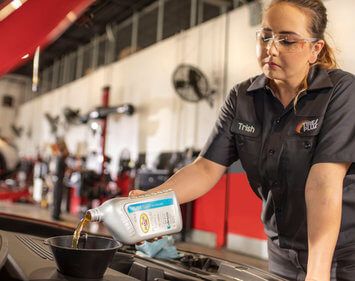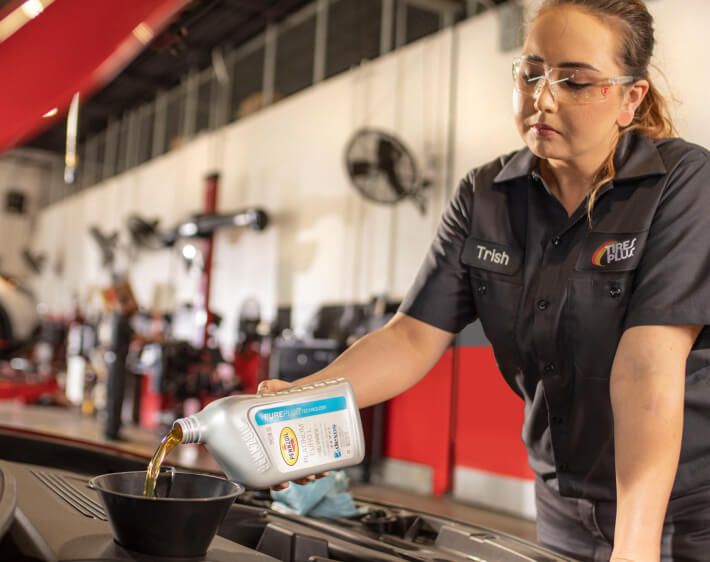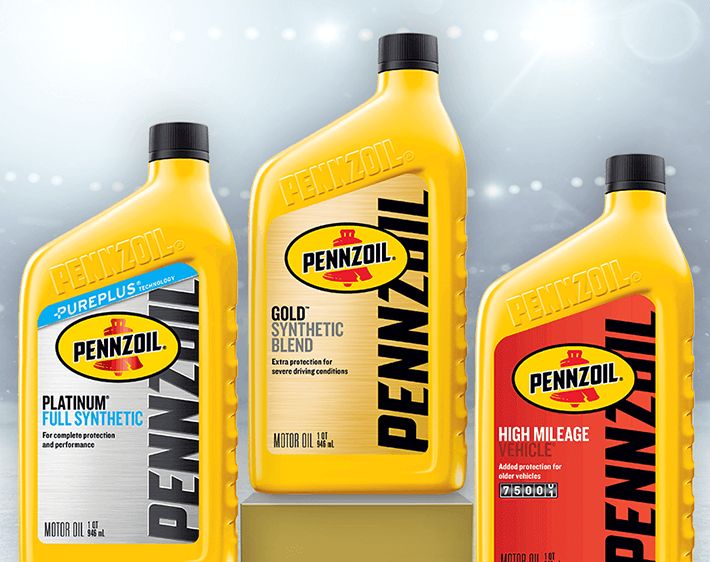
Conventional Motor Oil: Good for Your Budget
Of all the common types of motor oil, conventional oil can be one of the best for your budget. Conventional oil is made from crude oil that’s extracted from underground, and it’s designed to do one job: keep your engine lubricated and running smoothly. A conventional motor oil like Quaker State Advanced Durability Oil can help protect your engine from rust, corrosion, and harmful contaminants.
Conventional motor oil is good for saving cash and meets the requirements of most manufacturers, but it does contain some impurities. While this isn’t necessarily an issue in the short term, over time it could allow for more “gunk” buildup in your engine than a more refined motor oil would, like a synthetic.
High Mileage Oil: Better for Engine Longevity
Are you and your car in a long-term, committed relationship? If so, your engine would love a little TLC in the form of high mileage motor oil. Just like a spouse of 20 years has different needs than a three-week summer fling, vehicles with more than 75,000 miles on the odometer have different motor oil needs than newer vehicles.
The benefits of high mileage oil are pretty significant: improved fuel efficiency, cleaner operation, and reduced wear are just a few. High-mileage oil can be slightly more expensive than conventional motor oil, but it’s worth it. It's enhanced with special conditioning agents that help reduce and prevent leaks by restoring aging, cracked, or brittle plastic and rubber engine parts. Your engine, like many other objects, is only as strong as its weakest part, and high mileage oil can help protect that strength.
If you plan on driving your car until the leather seats crack and the window tint fades, consider high mileage oil. This type of motor oil can help ensure you and your ride have many more happy years together.
Synthetic Motor Oil: Best for Engine Protection
When it comes to choosing the best motor oil for your engine, synthetic oil is way ahead of conventional oil. It's ideal for today's modern, higher performance engines. Although it originates as crude oil (just like conventional oil), full synthetic oil is highly refined and contains far fewer impurities than conventional oil.
Because of this, a pure synthetic like Pennzoil Platinum Full Synthetic oil can do more than prevent thick sludge or gunk from forming in your engine; it can also help to clean out any gunk that’s already built up inside.
Synthetic oil is also an ideal choice for winter. Because it’s partially man-made, synthetic oil can be formulated to flow more easily in cold temperatures, which can significantly reduce wear on your engine from starting up in frigid temperatures.
While synthetic oil can be more expensive than conventional oil, there’s no doubt that it offers better protection.
If you’d like to switch to synthetic but aren’t ready to drop that extra cash, try a synthetic blend oil like Pennzoil Gold Synthetic Blend instead. Synthetic blend oils are more refined than conventional oils, but less expensive than full synthetics—making them a great “in between” option.
What Is the Best Motor Oil for My Car?
At Tires Plus, our experienced technicians are happy to explain the best motor oil types so you can choose an oil that suits your car and your budget. We might be under the hood, but you’re in the driver’s seat, so make the choice that’s right for you! Ready to go? Make an oil change appointment at your nearest Tires Plus today
| Conventional Oil | High Mileage Oil | Synthetic Oil | |
|---|---|---|---|
| Best For | Standard engine maintenance; Tight budgets | Engine longevity; Vehicles with more than 75,000 miles | Engine protection; Modern, higher performance engines |
| Key Benefits | Affordable and meets the requirements of most manufacturers | Specialized additives and conditioners soothe aging engines | Has fewer impurities, so it keeps your engine in better shape and could help prevent repairs down the road |
| Cost | Less expensive | More expensive than conventional oils, but can be cheaper than some synthetic oils depending on the oil blend | Most expensive, but synthetic oil blends are an affordable alternative |



